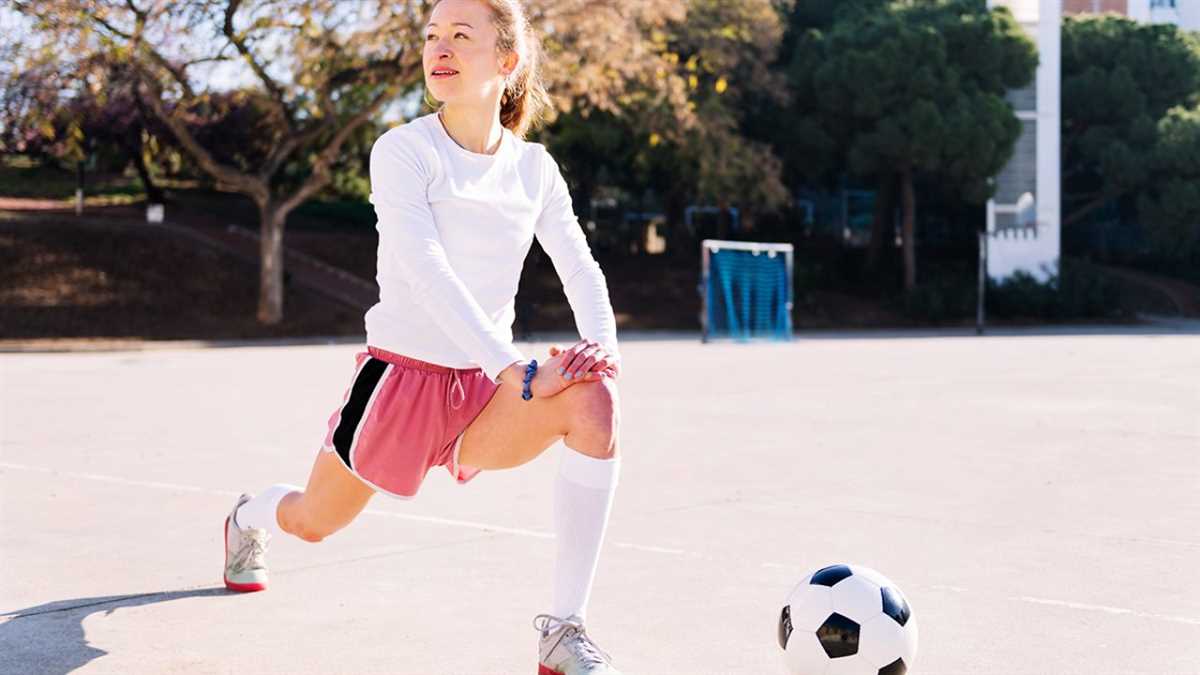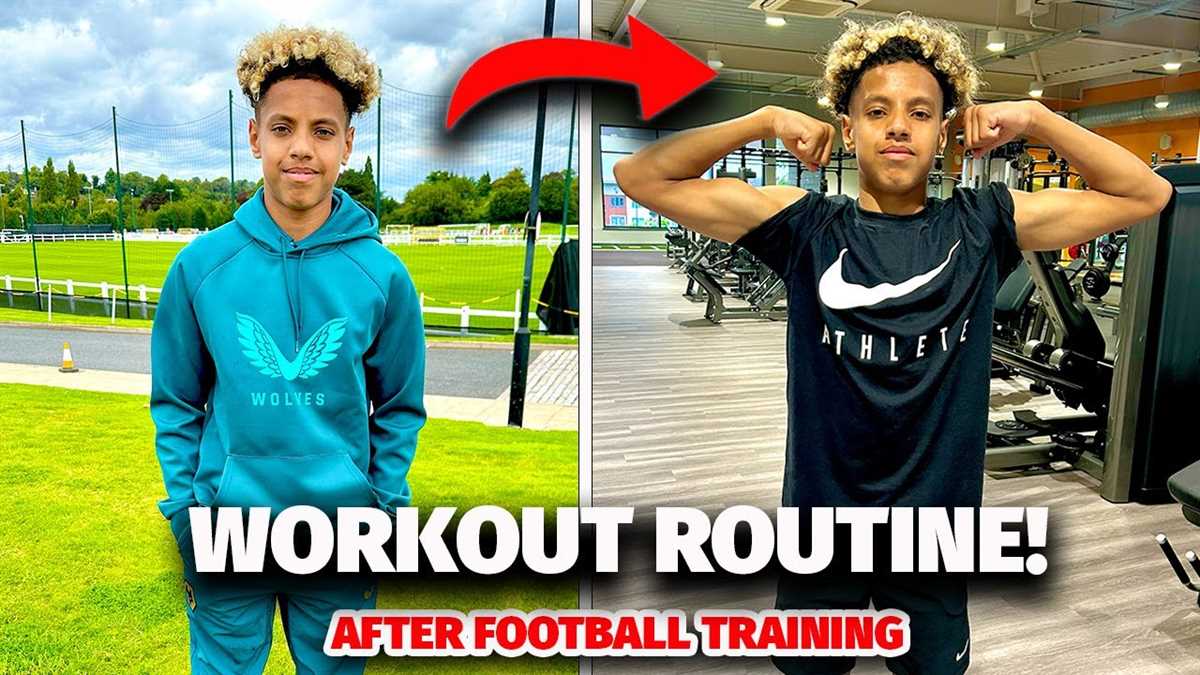In the world of top-level soccer, maintaining peak physical condition is crucial for success on the field. An effective training regimen is not just about rigorous exercise but also about tailored routines that address specific needs and goals. This approach ensures that every aspect of an athlete’s fitness is optimized to enhance their performance.
Structured exercise plans play a pivotal role in developing the essential skills and stamina required for soccer. These tailored programs focus on various elements such as strength, endurance, and agility. By incorporating diverse drills and exercises, players can achieve a well-rounded fitness profile that supports their athletic goals.
Personalized fitness schedules are designed to challenge and improve different physical attributes, ensuring that every training session contributes to overall performance enhancement. This strategic approach helps athletes stay at the top of their game, adapting to the demands of competitive play while continually pushing their limits.
Training Philosophy on the Pitch
Exploring the approach to athletic development, this section delves into a distinctive methodology employed by a prominent figure in the sport. This philosophy emphasizes not just physical conditioning but also mental fortitude and tactical acumen. The aim is to foster a comprehensive skill set that enhances both individual performance and team synergy.
The principles underpinning this training approach are meticulously crafted to integrate various elements, ensuring a balanced enhancement of core attributes. Key aspects of this philosophy include:
| Element | Description |
|---|---|
| Physical Conditioning | Focused exercises to build endurance, strength, and agility, crucial for peak performance. |
| Mental Toughness | Techniques and practices designed to develop resilience and a winning mindset. |
| Tactical Awareness | Strategies and drills that enhance understanding of game dynamics and decision-making. |
| Team Cohesion | Activities aimed at improving communication and synergy among team members. |
Through this holistic methodology, athletes are not only prepared physically but also equipped with the mental and strategic tools essential for excelling in competitive environments.
Key Elements of an Elite Training Regimen
Successful athletic performance hinges on a meticulously crafted training regimen. For top-level footballers, this involves a blend of various components that cater to both physical and tactical development.
- Strength Training: Building core strength is essential. Exercises targeting muscle groups relevant to the sport enhance overall power and stability.
- Endurance Work: Cardiovascular exercises improve stamina, enabling athletes to maintain high performance throughout the game.
- Agility Drills: Agility exercises help in quick directional changes and enhance on-field maneuverability.
- Skill Development: Regular practice of technical skills ensures precision and consistency in ball control and passing.
- Recovery Protocols: Adequate rest and recovery strategies are vital for muscle repair and to prevent injuries.
Incorporating these elements into a training regimen fosters both physical and mental resilience, crucial for excelling in competitive environments.
Fitness Goals in the Training Regimen
Setting and achieving fitness targets plays a crucial role in enhancing athletic performance and overall physical condition. The goals are carefully crafted to align with the demands of the sport and the individual’s specific needs. This approach ensures a balanced development of strength, endurance, and agility.
To illustrate, the following table highlights the primary objectives within the training framework:
| Objective | Description |
|---|---|
| Strength Development | Focus on building muscle strength to improve overall power and stability. |
| Endurance Enhancement | Increase cardiovascular capacity to sustain high levels of performance throughout the duration of the activity. |
| Agility Training | Improve quickness and coordination to better navigate the field and respond to dynamic situations. |
| Flexibility Improvement | Enhance range of motion to reduce injury risk and support optimal movement efficiency. |
Drills and Exercises for Skill Improvement

Enhancing one’s abilities on the field involves a combination of targeted drills and strategic exercises. These activities are designed to refine technical skills, boost agility, and improve overall performance. Focusing on these key components ensures steady progress and mastery of the game.
To maximize skill development, incorporating a variety of exercises is crucial. Below is a table outlining effective drills that cater to different aspects of athletic performance:
| Drill | Description | Target Area |
|---|---|---|
| Ball Control Drills | Exercises focused on improving handling and precision with the ball. | Ball Mastery |
| Agility Training | Activities designed to enhance quick movements and directional changes. | Speed and Coordination |
| Passing Accuracy | Drills aimed at refining the precision of passing techniques. | Passing Skills |
| Defensive Maneuvers | Exercises to improve positioning and reaction during defensive plays. | Defensive Skills |
Nutrition and Recovery in Training Regimen

The journey to peak athletic performance is deeply intertwined with the principles of nutrition and recovery. A balanced approach to these elements ensures that the body remains in optimal condition and can sustain high levels of exertion over time.
Proper nourishment is essential for fueling intense physical activity. A diet rich in proteins, healthy fats, and complex carbohydrates provides the necessary energy and aids in muscle repair and growth. Incorporating a variety of vitamins and minerals through whole foods supports overall health and enhances performance.
Equally important is the emphasis on recovery. Adequate rest and recovery practices allow the body to repair itself and adapt to the stresses of training. Techniques such as stretching, hydration, and sleep play crucial roles in reducing the risk of injury and ensuring long-term success.
Adapting the Regimen for Various Skill Levels
Tailoring a training program to suit different levels of experience can significantly enhance its effectiveness. Whether you’re a beginner, intermediate, or advanced athlete, adjusting the intensity and complexity of exercises ensures optimal progression and performance. Customizing the regimen to individual capabilities fosters better results and reduces the risk of injury.
For novices, focusing on foundational exercises and gradually increasing intensity allows for proper skill acquisition and physical adaptation. In contrast, more experienced individuals might benefit from advanced drills and higher intensity workouts to refine techniques and boost overall performance.
Ultimately, a well-structured and adaptable program accommodates varying skill levels, ensuring that each participant can engage with the regimen at their own pace while striving for continuous improvement.




